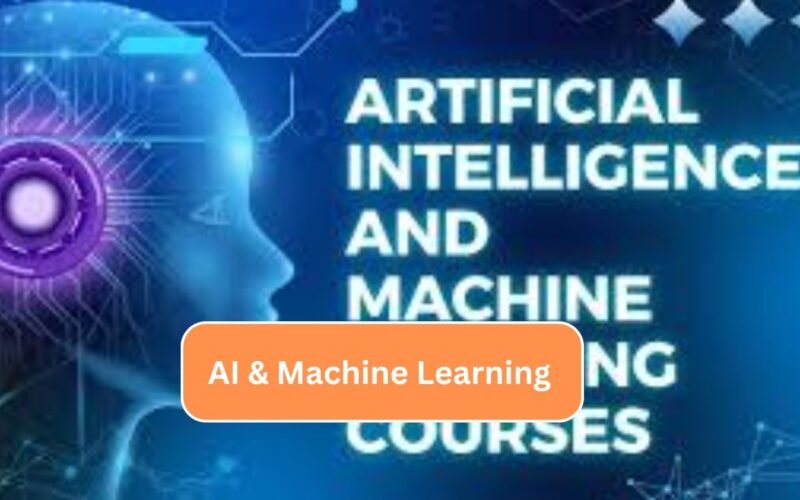Artificial Intelligence (AI) and Machine Learning (ML) are transformative fields of computer science that are revolutionizing how we interact with technology. AI focuses on creating intelligent systems capable of performing tasks that typically require human intelligence, while Machine Learning, a subset of AI, allows systems to learn and improve from data without explicit programming.
What is Artificial Intelligence?
Artificial Intelligence is the science of designing machines and systems that can mimic human intelligence. AI systems can perform tasks such as problem-solving, decision-making, speech recognition, language translation, and visual perception. The ultimate goal of AI is to create systems that can think, reason, and act autonomously.
What is Machine Learning?
Machine Learning is a branch of AI that enables systems to learn patterns from data and improve their performance over time. Instead of following predefined rules, ML algorithms analyze data, recognize patterns, and make predictions or decisions based on past experiences.
Key Areas of AI & Machine Learning
- Supervised Learning:
- Learning from labeled datasets to make predictions
- Applications: spam detection, fraud detection, and medical diagnosis
- Unsupervised Learning:
- Discovering hidden patterns in unlabeled data
- Applications: customer segmentation, anomaly detection, and recommendation systems
- Reinforcement Learning:
- Learning through trial and error to achieve goals
- Applications: robotics, game AI, and autonomous vehicles
- Natural Language Processing (NLP):
- Understanding, interpreting, and generating human language
- Applications: chatbots, language translation, sentiment analysis
- Computer Vision:
- Teaching machines to interpret and process visual information
- Applications: facial recognition, medical imaging, and autonomous driving
- Deep Learning:
- Advanced ML techniques using neural networks with multiple layers
- Applications: image and speech recognition, self-driving cars, and AI assistants
Importance of AI & Machine Learning
AI and ML are transforming industries and daily life:
- Healthcare: AI helps in disease diagnosis, drug discovery, and personalized medicine.
- Business: ML algorithms improve customer experience, marketing, and decision-making.
- Finance: AI detects fraud, manages risk, and automates trading.
- Transportation: Self-driving vehicles and traffic optimization rely on AI.
- Education: Personalized learning platforms adapt to student needs.
- Environment: AI models monitor climate change, optimize energy use, and manage resources.
Skills Required in AI & Machine Learning
Professionals in AI & ML need a combination of programming, analytical, and mathematical skills:
- Proficiency in programming languages like Python, R, or Java
- Understanding of algorithms, data structures, and mathematics (linear algebra, calculus, statistics)
- Knowledge of ML frameworks like TensorFlow, PyTorch, and Scikit-learn
- Data preprocessing, analysis, and visualization skills
- Problem-solving, critical thinking, and creativity
Career Opportunities in AI & Machine Learning
The field offers diverse and high-demand career paths:
- Machine Learning Engineer
- AI Research Scientist
- Data Scientist
- Computer Vision Engineer
- NLP Engineer
- Robotics Engineer
- AI Consultant
- Deep Learning Specialist
The Future of AI & Machine Learning
AI and ML are shaping the future of technology and society. Emerging trends include autonomous systems, AI-driven healthcare, ethical AI, reinforcement learning applications, and AI in cybersecurity. The field promises innovation across industries, creating smarter solutions and enhancing human capabilities.
Conclusion
Artificial Intelligence and Machine Learning are at the forefront of technological advancement. For those passionate about technology, data, and innovation, they offer exciting and rewarding career opportunities. By mastering AI and ML, professionals can contribute to building intelligent systems that improve lives, enhance productivity, and shape the future of a digital world.




